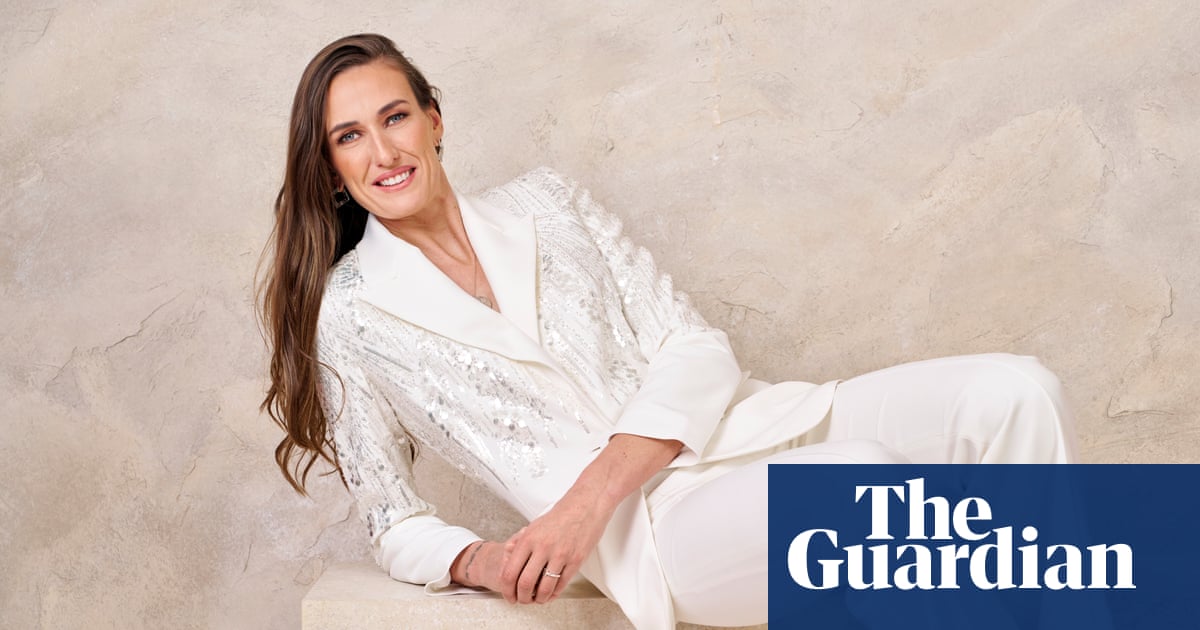
It’s the winning streak that everyone has been talking about. For the 20th straight year, Ant McPartlin and Declan Donnelly have walked away with the National Television award for best TV presenter(s). “The first year we won an NTA, Tony Blair was the prime minister and Newcastle United qualified for the Champions League,” said McPartlin in his acceptance speech. These awards are voted for by the public, and public love for the duo is yet to fade. From SMTV Live to Pop Idol, all the way through to Saturday Night Takeaway and I’m A Celebrity..., it is comforting that they are still here, still entertaining us, still in their prime.
Just as gardeners watch for signs that the seasons are changing, I sense a change in the air when television is about to make the shift from “sport etc” to comfort TV. It starts with the distant sound of the University Challenge theme tune and picks up when the small-screen blockbusters announce the dates that they will return. Soon, The Great British Bake Off will be back (21 September), as will Strictly Come Dancing (18 September), and eventually, when the balm of it is most needed, I’m a Celebrity… will appear, from Wales for the second year in a row. I am trying not to assume that many of us will be stuck indoors for the bulk of a dank, dark winter, but last year these competitions proved to be as comforting as Ant and Dec, and alleviated just a bit of the gloom.
No wonder comfort television won big at the NTAs. All three of those shows picked up awards, as did Gogglebox and Line of Duty. They are all programmes that people still watch together, and want to discuss, rather than furtively streaming on a phone while wondering if there really is anyone else out there with an opinion on season seven of Alone on Sky History.
Besides, I have been listening to The Dropout this week, the podcast that first appeared in 2019, in order to catch up on the Elizabeth Holmes/Theranos affair, as Holmes’s trial continues in the US. In one episode, prior to the scandal unfolding, when most of the world still thought of her as a world-changing tech pioneer, an interviewer asks Holmes if she owns a television. She laughs, and says she does not. She works, from the second she wakes up to the minute she goes to sleep. I am not saying that if she set aside an hour for Bake Off every week she might not have gone the full Dr Evil, but I am leaving that thought with you, as I watch the trailer for the new series of Strictly.
Susanna Clarke’s labour of love pays rich dividends
I feel lucky to have read Susanna Clarke’s wonderful Piranesi, which won the Women’s prize for fiction last week, without knowing a thing about it. I am yet to tackle Clarke’s previous novel, Jonathan Strange and Mr Norrell, in part because it is a doorstep of a book. It looks heavy, and I used to do most of my reading on the bus or train. However, Piranesi blew me away. It is utterly extraordinary. Now it is a deserving prize winner, and with that sticker on its jacket, it will be everywhere, as it should be.
An emotional Clarke accepted the award at the ceremony last Thursday, explaining that Piranesi had been “written, nurtured and publicised during a long illness”, and that she thought she would never be well enough to write it. It took her 16 years. She said she hoped her win would inspire “other women who are incapacitated by long illness”. It brought to mind Hilary Mantel, who told the Guardian last week that her own poor health had made it difficult for her to work in a team and that, after adapting The Mirror and the Light for stage, she realised that she should have been writing plays “all my life”. Both achievements go beyond the traditional triumph of award winning, or finding one’s calling. Both are inspirational and deeply moving.
If you are yet to read Piranesi, I urge you not to find out anything about it, if possible, and to experience it without any context. It is one of the most unusual, brilliant stories I have ever come across and, unlike much in this world, it is best approached blindly.
Keanu Reeves, keep taking the tablets
Lovers of tiny sunglasses, massive leather jackets and Keanu Reeves’s entire existence should rejoice; the new Matrix film is almost upon us. The trailer for The Matrix Resurrections, the fourth film in the series and the first since 2003, was fed to the hungry lions of the internet last week and, contrary to what is usually expected from something so eagerly anticipated, it met neither a collective eye roll nor disproportionate fury. It was broadly, if cautiously, embraced. It actually looks kind of, well, decent? We’ll find out at the end of the year.
More importantly, it brings the notion of red pills and blue pills firmly back into the realm of fiction and attempts to wrestle them away from the darker symbolism they have assumed. (The old films’ co-director Lilly Wachowski tried this back in 2020, interrupting online banter about “taking the red pill” between Elon Musk and Ivanka Trump with a less-than-friendly retort.) The new poster features both the red and blue pills, which have had a glossy HD makeover from the original film. If you watch the infamous 1999 “choice” scene now, it looks like Morpheus is offering Neo to pick between two brands of cod liver oil.
Rebecca Nicholson is an Observer columnist












